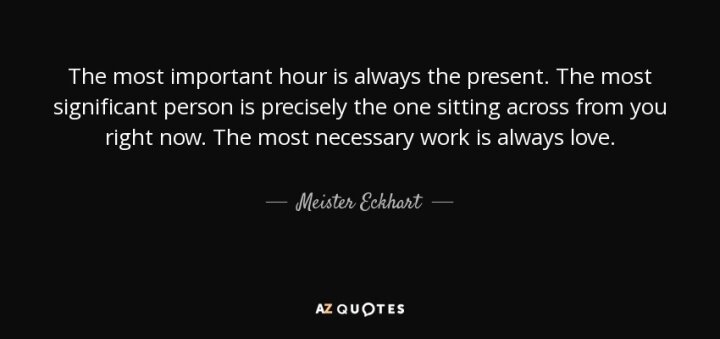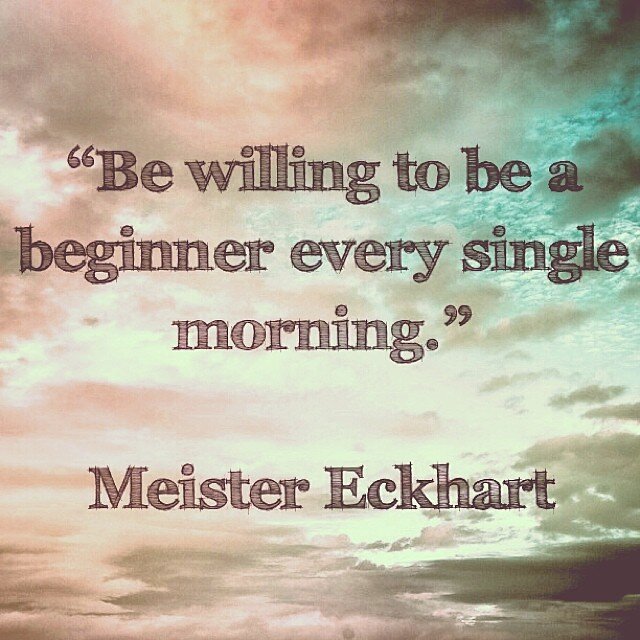Meister Eckhart
Eckhart was a Christian mystic around the 13th century. Some people seem to think a mystic pulls rabbits out of a hat (😀) but in this context it simply means a human being who seeks to experience the divine rather than just write/create theology. To live truth rather than just think it.
Like many Christian mystics, he sailed close to the wind as far as heresy is concerned. But that seems par for the course. We all need a dash of heresy before any attempt to swallow anyone elses "only way"......😀
Eckhart is seen as a "dharma brother" by many of the Buddhist Faith, and the "zen man" D.T.Suzuki said that certain of his utterances mirrored the prajna wisdom of zen - direct seeing, when concepts fall away and only the constant advance into novelty remains.
Eckhart once said that if the only prayer we ever said was "Thank You" it would be enough. I think this is so. It certainly corresponds to my own Pure Land faith, where the Nembutsu is in effect a cry of gratitude - felt in all circumstances.
Again, he said:- "Love has no why". Which I find profound. Make of it what you will. We are what we understand.
Another of his phrases was "Nothing that knowledge can grasp or desire can want is God. Where knowledge and desire end, there is darkness, and there God shines."
Anyone familiar with the "anatta" (not-self) teaching of Buddhism will see why Eckhart is seen as a Dharma Brother.
Enough for now. My coffee is getting cold. Shopping to get, grandchildren to collect and cook for.
Like many Christian mystics, he sailed close to the wind as far as heresy is concerned. But that seems par for the course. We all need a dash of heresy before any attempt to swallow anyone elses "only way"......😀
Eckhart is seen as a "dharma brother" by many of the Buddhist Faith, and the "zen man" D.T.Suzuki said that certain of his utterances mirrored the prajna wisdom of zen - direct seeing, when concepts fall away and only the constant advance into novelty remains.
Eckhart once said that if the only prayer we ever said was "Thank You" it would be enough. I think this is so. It certainly corresponds to my own Pure Land faith, where the Nembutsu is in effect a cry of gratitude - felt in all circumstances.
Again, he said:- "Love has no why". Which I find profound. Make of it what you will. We are what we understand.
Another of his phrases was "Nothing that knowledge can grasp or desire can want is God. Where knowledge and desire end, there is darkness, and there God shines."
Anyone familiar with the "anatta" (not-self) teaching of Buddhism will see why Eckhart is seen as a Dharma Brother.
Enough for now. My coffee is getting cold. Shopping to get, grandchildren to collect and cook for.







